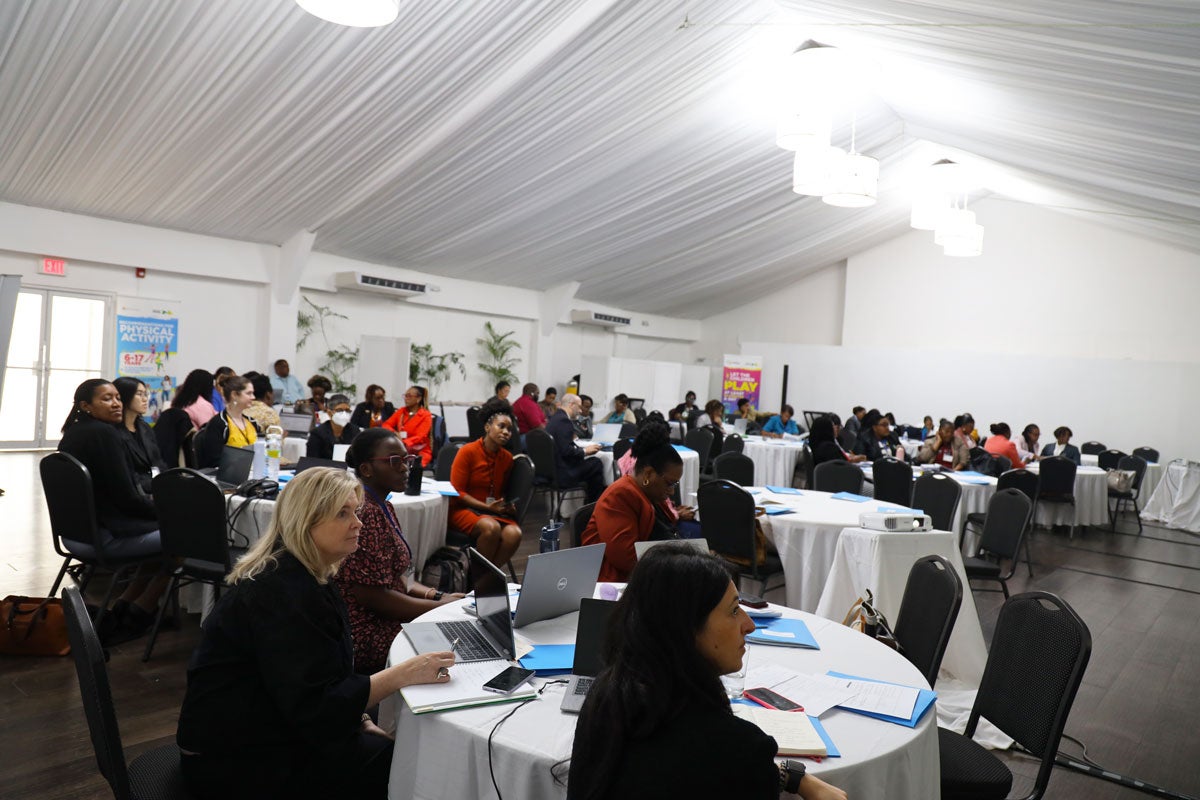
Kingston, Jamaica, February 13, 2024 (PAHO) - Unless current trends are changed, by 2060, 90% of the Jamaican population will be obese. This alarming information was shared by the Ministry of Health and Wellness at a stakeholder meeting held last week under the theme, “A Behavioural Insights Approach to Improve Nutrition-Related Behaviours among School-Going Children.”
The discussion focused on a novel collaboration that utilizes behavioural insights to explore the behavioural drivers and enablers addressing the concerning trend of unhealthy food consumption among Jamaican schoolchildren—a contributor to the surge in adolescents being overweight or obese. Scoping visits were conducted in schools during 2023 as part of a defining phase to better understand the food environment and the food habits of children, which could be modified using behaviourally informed interventions.
Contributing to the discussion, Mr. Ian Stein, the Pan American Health Organization / World Health Organization (PAHO/WHO) Representative in Jamaica, Bermuda, and the Cayman Islands, reaffirmed PAHO's commitment to supporting the country through the actions outlined in its Plan of Action to prevent obesity in children and adolescents. He stated, "This effort signifies an important stride in nurturing a healthier future for our nation’s children by addressing the behavioural aspects of food choices, aiming to positively impact their health, well-being, and overall quality of life."
The multi-agency collaboration under consideration includes local involvement from the Ministry of Health and Wellness and the Ministry of Education and Youth, along with PAHO, WHO, and the Yale Research Initiative on Innovation and Scale (Y-Rise). The next stage involves designing, delivering, and analyzing a qualitative study to identify behavioural barriers and enablers, including the selection of healthier food to be promoted based on PAHO and WHO nutrient criteria.
Dr. Christopher Tufton, Minister of Health and Wellness, emphasized that the behavioural choices reflected in the current health profile of the population similarly warrant a behavioural response. “One of the real challenges we have is to inform and educate our population to come to terms with the reality that it is through behavioural change that we are going to enhance the wellness of our society, not just through the breakthroughs of clinical sciences,” he said.
Adding her voice to the conversation, Hon. Marsha Smith, State Minister in the Ministry of Education and Youth, echoed the call for a whole-of-government and multi-sectoral partnership to address the issue of poor nutrition among schoolchildren. She advocated for a shift in the perception of physical education, emphasizing its role not as drudgery but as a means of optimizing bodily functions, which, in turn, aids the learning process.




